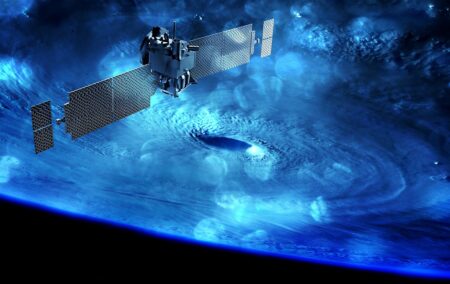Researchers in the Netherlands say that radio waves from Elon Musk’s more than 6,000 Starlink satellites are interfering with scientists’ ability to study the universe.
The BBC reports that researchers at the Netherlands Institute for Radio Astronomy (ASTRON) say the new generation of Starlink satellites, which provide fast internet around the world, are interfering more with radio telescopes than earlier versions.
Interference from the second generation, or V2, satellites was found by ASTRON to be 32 times stronger than the first generation.
One estimate suggests there are 6,402 Starlink satellites currently in orbit at around 550km above Earth, making it the largest provider by far. The satellites are relatively large − with 3m flat panels and an 8m solar array for power.
SpaceX’s main competitor, OneWeb, has fewer than 1,000. Amazon is developing its own network and hopes to launch at least 3,000 in the next few years.
By 2030 the number of satellites in orbit is expected to surpass 100,000.
Professor Jessica Dempsey, director of ASTRON, is quoted as saying: “Every time more of these are launched with these kinds of emission levels, we see less and less of the sky.
“We’re trying to look at things like the jets emitted from black holes in the centre of galaxies. We also look at some of the earliest galaxies, millions and millions of light years away, as well as exoplanets,” she said, highlighting the areas the satellite radiation is affecting.

